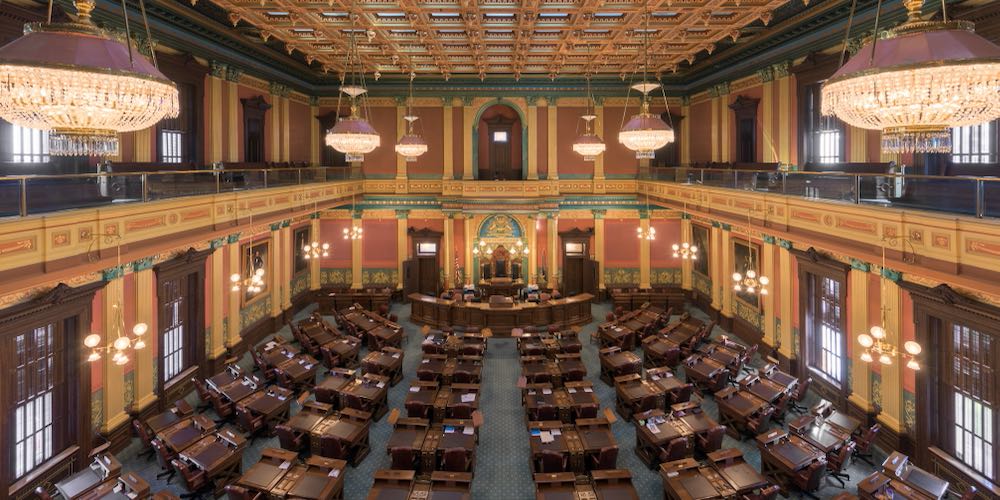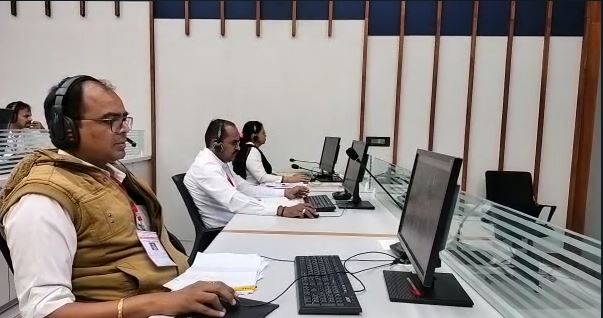
They—I’m seeking at you, Idea O’Neill—say all politics is community. “They” are completely wrong. But they should really be right.
If all politics have been actually neighborhood, voter turnout would be highest in area elections. But the opposite is the case. The the greater part of Individuals really do not vote in midterm elections, but a vast majority do vote when the presidency is on the line.
If all politics ended up regional, then people would have larger incentive—or at least come across it easier—to forged an knowledgeable vote. One would only will need understanding of oneself and one’s have community, mainly because that would be exactly what every single election would be about.
Adhering to on that, if all politics ended up really area, there would be much less electrical power in partisanship. If what motivates my vote is a worry for correcting potholes on the US-131, or enhancing Grand Rapids, Michigan’s elementary and secondary colleges, or preserving the sacred rights of Greek Orthodox churches in my town to maintain substantial-earnings ethnic festivals on their house, I wouldn’t treatment much about the party of the candidate who experienced a workable prepare for accomplishing all those factors.
Now, anyone could level out that one can currently vote for individuals who have an impact on regional change. We currently have community elections, really don’t we? Of system, we do. But sad to say, as famous above, Us residents commonly don’t vote in people elections. We could insert to this, per the foregoing, that a number of states allow for straight-ticket voting, this means that votes “cast” for reduced-degree places of work frequently just reflect a voter’s social gathering desire for the presidency or other higher business, pushing countrywide and even condition-level issues downward fairly than regional concerns upward. The decline of regional news in favor of partisan national information media cannot maybe assist this kind of traits either, even where by straight-get together voting is not an option.
This record of grievances versus our present-day electoral system and voter behaviors is considerably from complete, but it ought to be ample to make my level: American politics is not really local. But it should really be.
What follows is self-consciously utopian, in both senses of that word: that is, I consider that there is no position (ou-topos) in which this strategy would ever be viable and place into exercise, but that if there were, it would be a very good place (eu-topos).
Eu-topia
Political philosophers from Thomas Hobbes to John Locke to John Rawls have made use of utopian believed experiments in buy to illustrate the ideas they believed most critical and purely natural to just societies. Thank God, no a single has at any time produced Hobbes’s Leviathan, for illustration, but as a result of interacting with it, often critically, several have been encouraged to forge new approaches in the genuine earth for the advancement of liberty.
My electoral utopia, to the extent it would be a eu-topia, appears like this: All politics would be really nearby, i.e., structurally and constitutionally so. The natural way, the initially issue to go would be the Seventeenth Modification to the US Structure, which recognized the direct election of senators by voters in its place of their oblique election by condition legislatures. Now, I’m not the initial crank to bemoan this Progressive-Period blight on our overall body politic, but I wouldn’t halt there. I’m just acquiring begun. I also would reduce the direct election of all national offices, together with the President of the United States, and some condition-level workplaces, even governors.
What I imagine is a absolutely tiered electoral system. The only direct elections would be the most community.
Why? The main difficulty with our electoral process now is scalability. Just one vote in a thousand indicates some thing. Candidates with that small of a voting pool have to have each one vote they can get. The local homecoming queen is a lot more agent of her constituents than customers of Congress. One in a million, however—so my economist close friends notify me—does not make a difference on the margin.
As the Antifederalist Samuel Bryan warned in Centinel I:
Do we not previously see, that the inhabitants in a variety of bigger states, who are remote from the seat of government, are loudly complaining of the inconveniencies and down sides they are subjected to on this account, and that, to appreciate the comforts of nearby governing administration, they are separating into smaller sized divisions[?]
In addition, Bryan fearful that congressional districts of 30,000 would be far too large:
The amount of the reps (becoming only one for every single 30,000 inhabitants) appears to be also several, either to communicate the requisite facts, of the wishes, community circumstances and sentiments of so extensive an empire, or to avoid corruption and undue affect, in the exercising of these types of terrific powers….
Thanks to different initiatives and ultimately the Reapportionment Act of 1929, currently our district sizing would be alarmingly unconstitutional on a literalist looking through of Art. 1, Sec. 2. The major these kinds of district is (at minimum right until January 3) Montana’s fittingly-named “at-substantial congressional district,” comprising around a million persons. A single concern of capping customers of the Dwelling of Associates at 435 is that Congress may possibly run out of literal seats (as if they couldn’t legislate just as well—or poorly—from FedEx Field). In fact, this to me is the best objection, since it is so deeply practical. Certainly, it does appear that 30,000—far from becoming far too big, as Bryan worried—may be far too modest, at the very least if bodily chairs in our actual Congress make a difference.
But bodily chairs do not make any difference for utopias. And in any case, I do not imagine it would be a dilemma. What I would visualize is a entirely tiered electoral method. The only direct elections would be the most community. These elected officers would get to vote on the up coming level up, and so on, all the way up to the place of work of president.
To help this, I’d even more charm to John Adams’ Ideas on Governing administration, written in April 1776 for the North Carolina Provincial Congress:
Allow the Agent Assembly then elect by ballot, from among the by themselves or their constituents, or both of those, a distinctive Assembly, which for the sake of perspicuity we will connect with a Council. It may consist of any number you make sure you, say twenty or 30, and must have a free and independent training of its judgment, and therefore a adverse voice in the legislature.
Consequently, the Assembly of elected officers would elect a second human body, the “Council.” He continues, “These two bodies as a result constituted, and manufactured integral sections of the legislature, allow them unite, and by joint ballot opt for a Governor….” Not the folks, but their associates (and the larger body chosen by people representatives) would elect the governor of North Carolina in Adams’ framework. This, he considered would minimize corruption and assist stay clear of the hazards of concentrating much too considerably electricity in one particular solitary branch of government.
Primary ministers in numerous parliamentary techniques are elected not by individual voters but the governing coalition, so there is a earth in which something like that component of this concept could genuinely function. Ah, but really working is specifically what my concept, regrettably, would not do.
Ou-topia
The rationale this would under no circumstances function is not a matter of constitutional mechanics. On that rating I imagine it would function splendidly, ensuing in a lot less partisanship, a lot more voter invest in-in, a lot more-educated voters, and probably even heightened voter change-out. I would even go so far as to say that I feel my proposal would be far more democratic than our present-day system, but making that case rhetorically is specifically in which it would not work.
Just about every 4 several years due to the fact 2000, the same cry difficulties loudly throughout the November editorial webpages: the cry to abolish the Electoral Faculty. Individuals really do not like it. They want more direct democracy. My level is that the extra immediate the democracy, the weaker—and consequently, much less democratic—it is.
If I do not like the recent president, I can vote for yet another. Michigan has 16 electoral votes and a population of approximately 10 million people today. My vote would have to be the marginal vote out of about 625,000 persons to be the determining vote for a one Michigan delegate—and I don’t even get to vote for the delegate, just the president! Review that to the electrical power I have above Michelle McCloud, Kent County District 13 county commissioner, exactly where my vote is just a small much less than just one in 30,000—just as the Framers intended!
But attempt convincing your fellow American that we’d be much better off with an electoral university of county commissioners as a substitute of voting for president or US senator or governor ourselves. Visualize how effortlessly these a professional-democratic position could be tarred as “undemocratic,” basically for the reason that it isn’t immediate democracy. For some, the objection might be enthusiastic by a basic feeling that they want a say in national politics. Soon after all, nationwide politics is virtually all about which our media prepares any individual to form an impression. Many others may cite loftier ideas, such as a Rousseauan “standard will” of the men and women. Whichever the rationale, for a ton of individuals all they’d listen to is “I never believe you must get to vote on that business office or difficulty.” Set that way, a rhetorical mountain stands in the way, and truly scalable democracy in The us continues to be a utopian dream.
But perhaps only by dreaming, it—or some thing motivated by it—may one working day be fact. It wouldn’t be the very first time, at least.




More Stories
Hakeem Jeffries’s historic election as House Democratic leader, explained
White House Says Immunity for MBS Was Unavoidable. Privately, They Weren’t So Sure.
Telephone Anxiety: Millennials Hate Mobile Calls